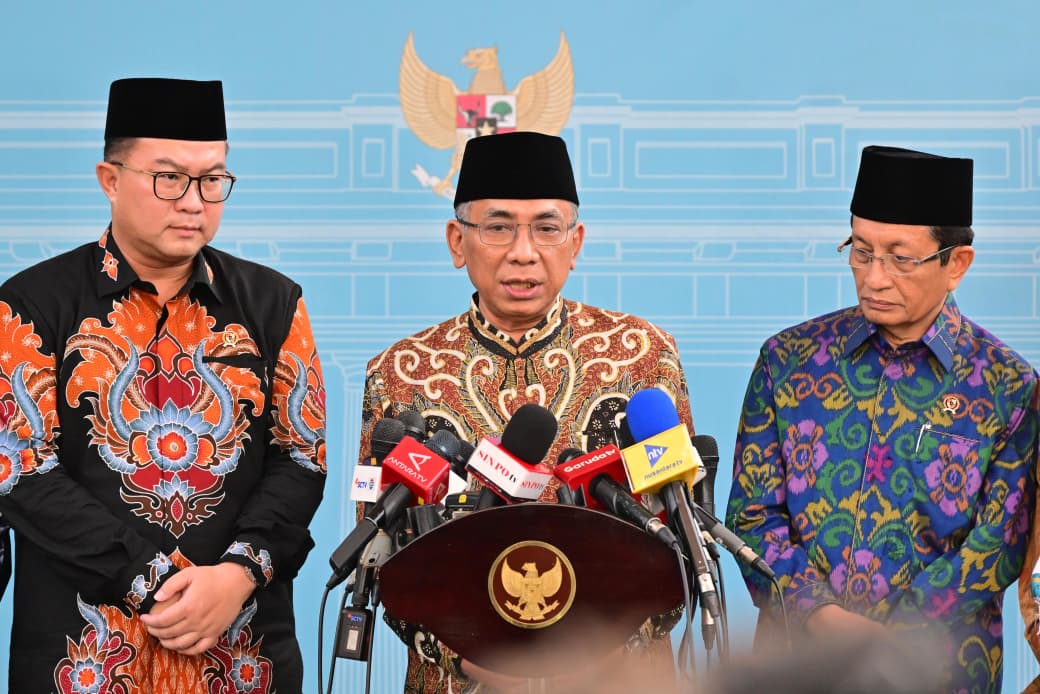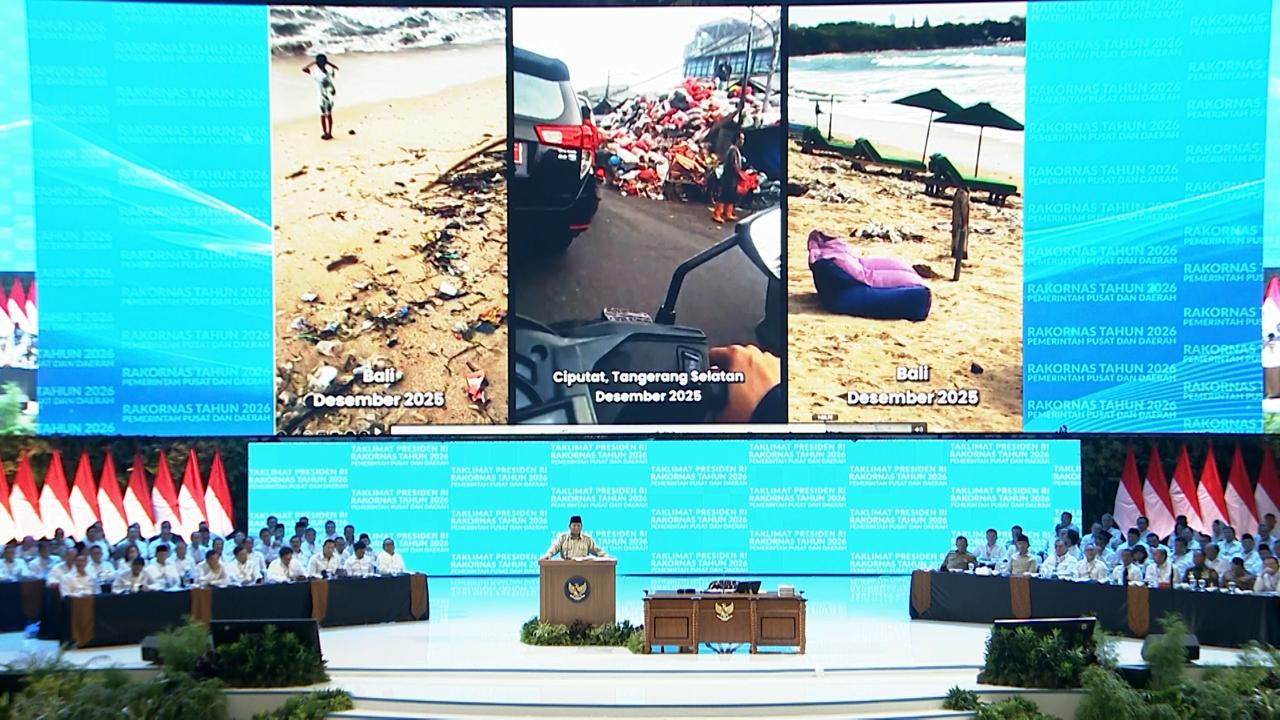Sri Mulyani: Indonesia’s Baseline Significantly Changes Following COVID-19 Pandemic

Minister of Finance delivers press statement via video conference on Tuesday (14/4). (Photo: Ibrahim/PR).
COVID-19 pandemic has changed Indonesia’s baseline this year rapidly, significantly, even very fundamentally as the pandemic has brought enormous health, social, economic, and financial impacts, Minister of Finance Sri Mulyani has said.
“For the country’s GDP, the Government currently estimates it will be under severe and very severe conditions. Indonesia’s baseline which was originally at 5.3 will experience pressure and will decline to 2.3 percent. Under this very severe condition, the figure might even drop to negative growth,” Sri Mulyani explained.
The negative growth, Sri Mulyani continued, will surely bring huge impacts on social and development, adding that the poverty rate might increase to 1.1 million people in a severe scenario or 3.78 million people in a more severe scenario.
The unemployment rate is also likely to increase to 2.9 million people in the severe scenario or up to 5.2 million people in more severe scenario, she added.
The Minister also noted that the Government is preparing steps to overcome COVID-19 in the health sector, in the communities, and in the business sector.
“The impact of COVID-19 has also brought global economy into recession. The IMF was initially projected that the global economy will grow by 3.3 percent this year, but it was then revised down,” Sri Mulyani said.
The correction, according to Sri, could reach minus 2.2 according to the Economist Intelligence Unit or based on the Fitch Rating Agency this year, while the global gross might be in the range of minus 1.9, which means the world will lose potential GDP of US$5 trillion this year.
“It is nearly the size of the GDP of Japan. COVID-19 has indeed affected health, social, economic, and financial aspects,” Sri Mulyani said, adding that those impacts then also affect other sectors, including stock index.
The former World Bank managing director went on to say that in response to the extraordinary conditions this year, various countries have taken measures to tackle the weakening economy and challenges of public health and safety issues, including fiscal policy, monetary policy, and financial sector policy.
Countries such as Australia, Singapore, America, and Malaysia, she added, have expanded their fiscal to more than 10 percent of GDP. Moreover, other countries have taken steps through their Central Bank, such as US Federal Reserve can buy municipal bonds and securities issued by local governments or even buy corporate bonds.
Those measures, Sri Mulyani continued, are aiming at avoiding more permanent damages to the economy. (TGH/FID/EN)
Translated by: Estu Widyamurti
Reviewed by: M. Ersan Pamungkas








